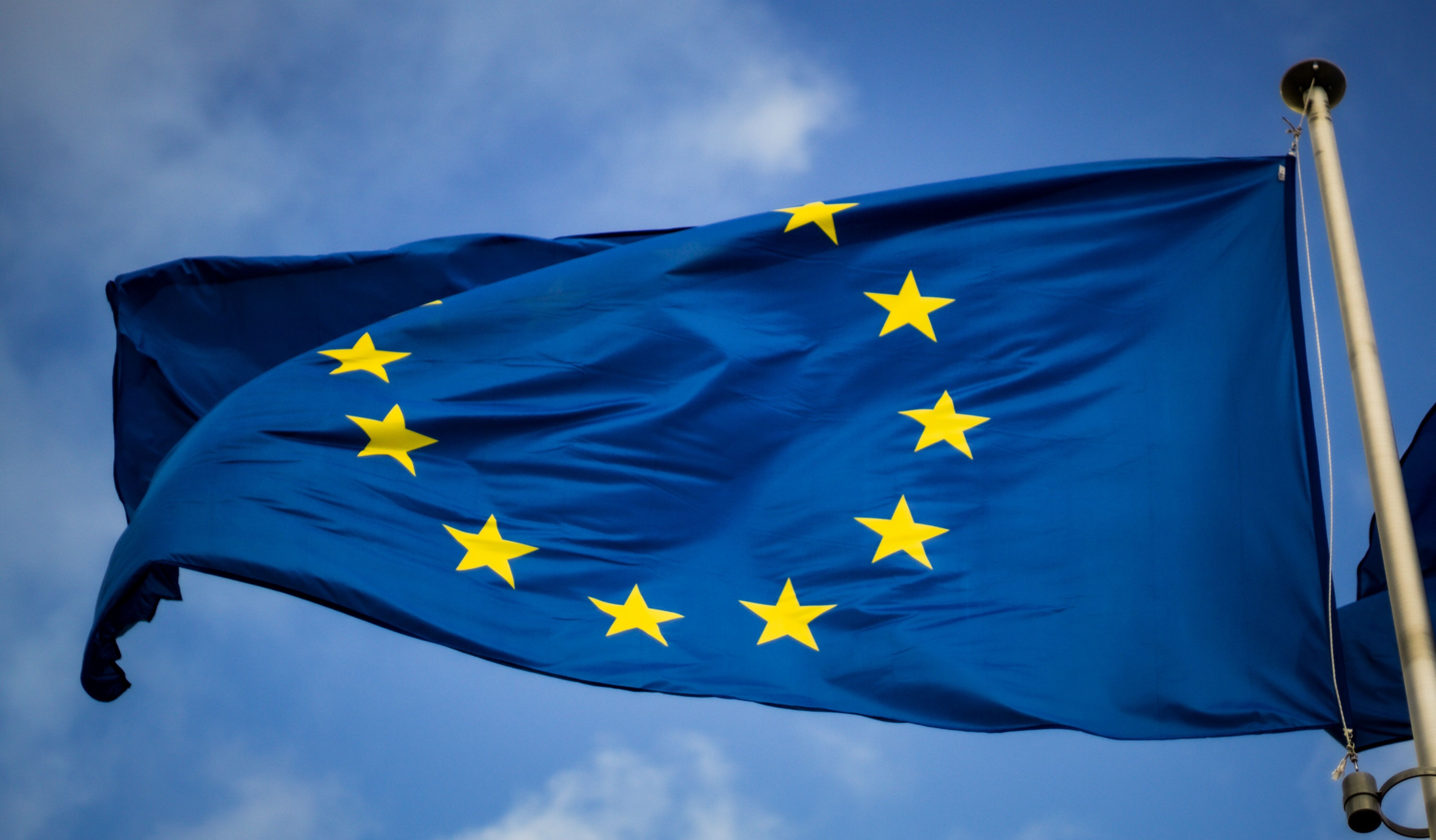2023 Key Insights
- POLITICO edges The Economist as most influential EU media source, with the Financial Times third.
- Social media influencers see significant increase in clout.
- LinkedIn is the second most frequently used social media channel after WhatsApp. Whilst X (formerly Twitter) sees a decline in usage.
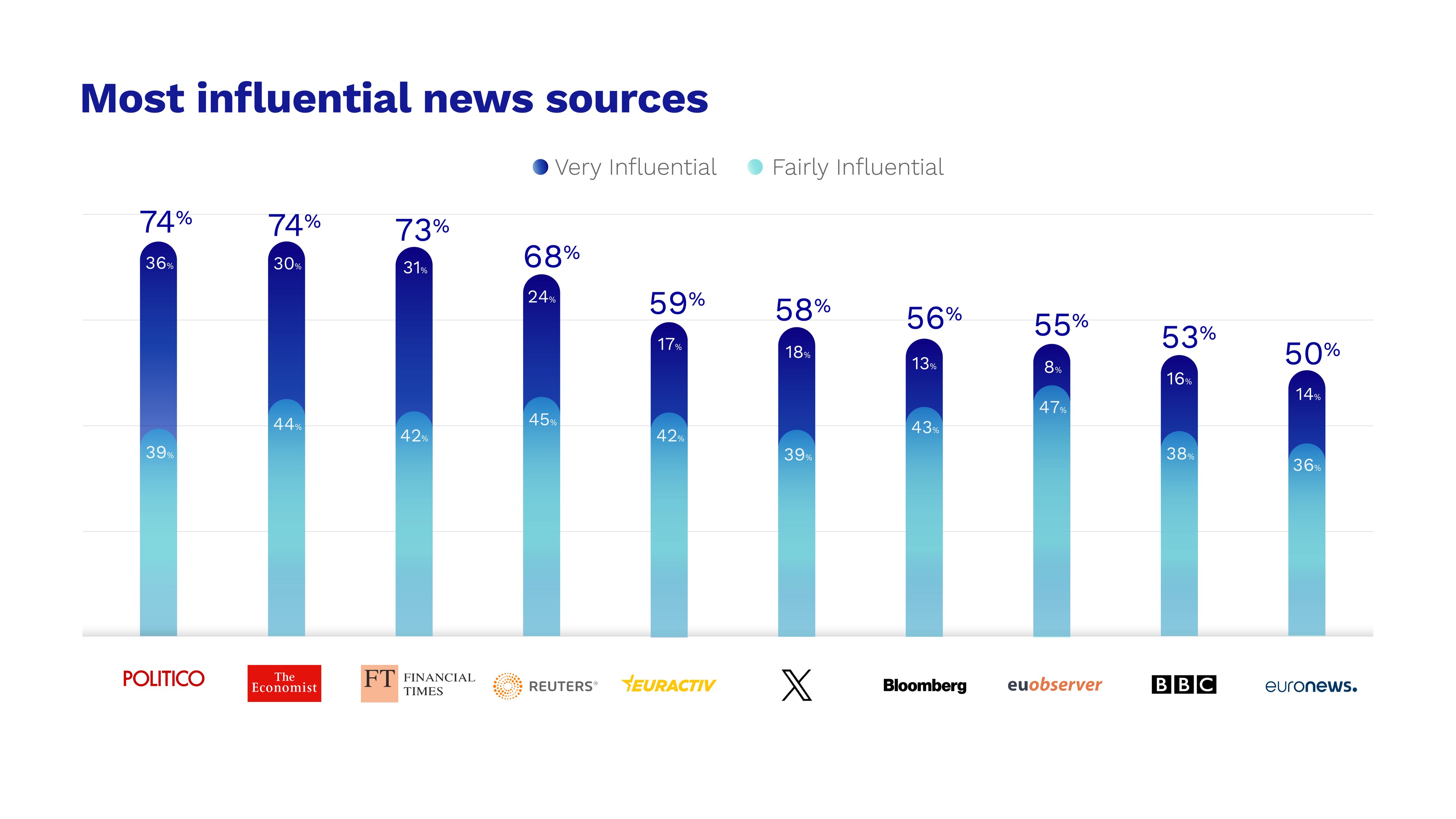
Followed by: Wall Street Journal (48%), New York Times (46%), LinkedIn (45%), Washington Post (36%), Brussels Times (32%), Facebook (28%), YouTube (25%), The Parliament Magazine (24%), Instagram (21%), Mlex (15%), TikTok (11%), Mastodon (3%).
POLITICO and The Economist are 2023’s most influential EU media source, with the Financial Times (FT) a close third. POLITICO and The Economist shared the overall ranking of 74%, however POLITICO is considered “very influential” by more respondents than its rival (36% v 30%).
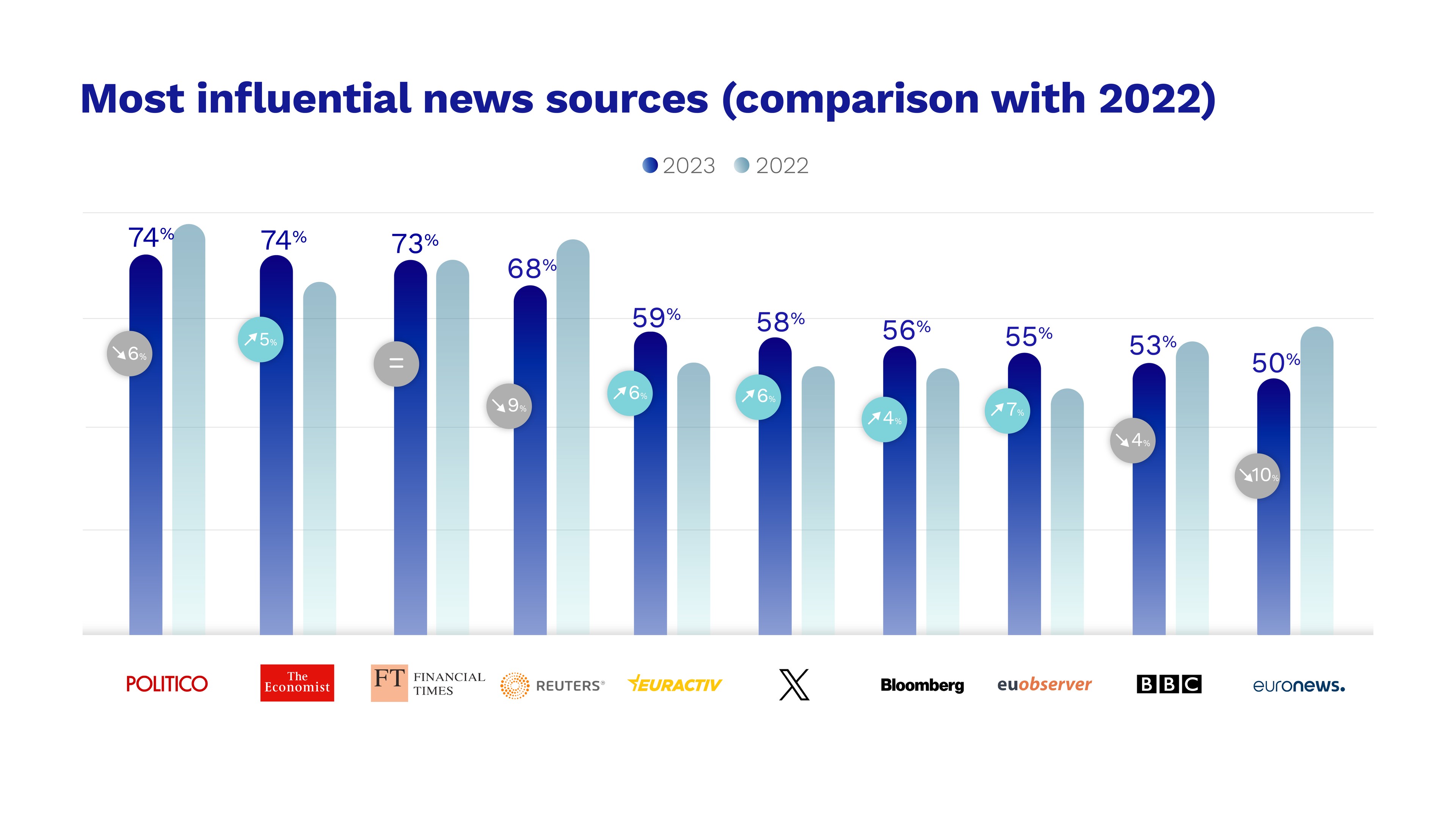
The Economist jumps both Reuters and the FT in the league table after a 5% surge in its vote. The FT stays in third place at 73%, while Reuters falters from second to fourth with a 9% drop to 68%. The movement continues throughout the ranking with Euractiv (up 6%), EUobserver (up 7%) and Euronews (down 10%).
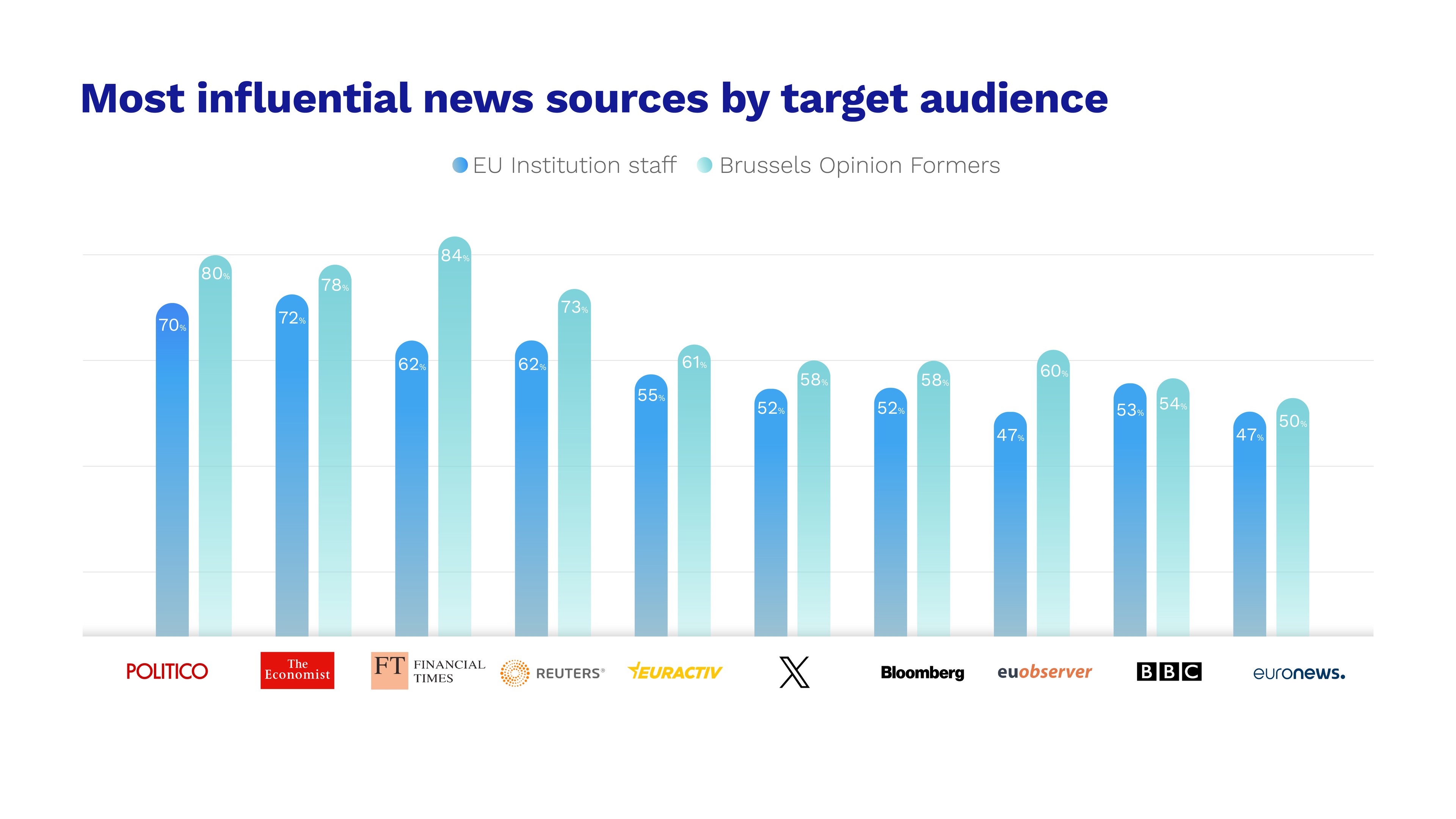
Insider access, level of expertise, and quality of analysis are the three most important values for media sources to provide. POLITICO is heralded for its insider access, and both The Economist and the FT are recognised for their expertise and quality of analysis. The Economist is also recognised uniquely among the top three, for its quality of journalists and content creators.
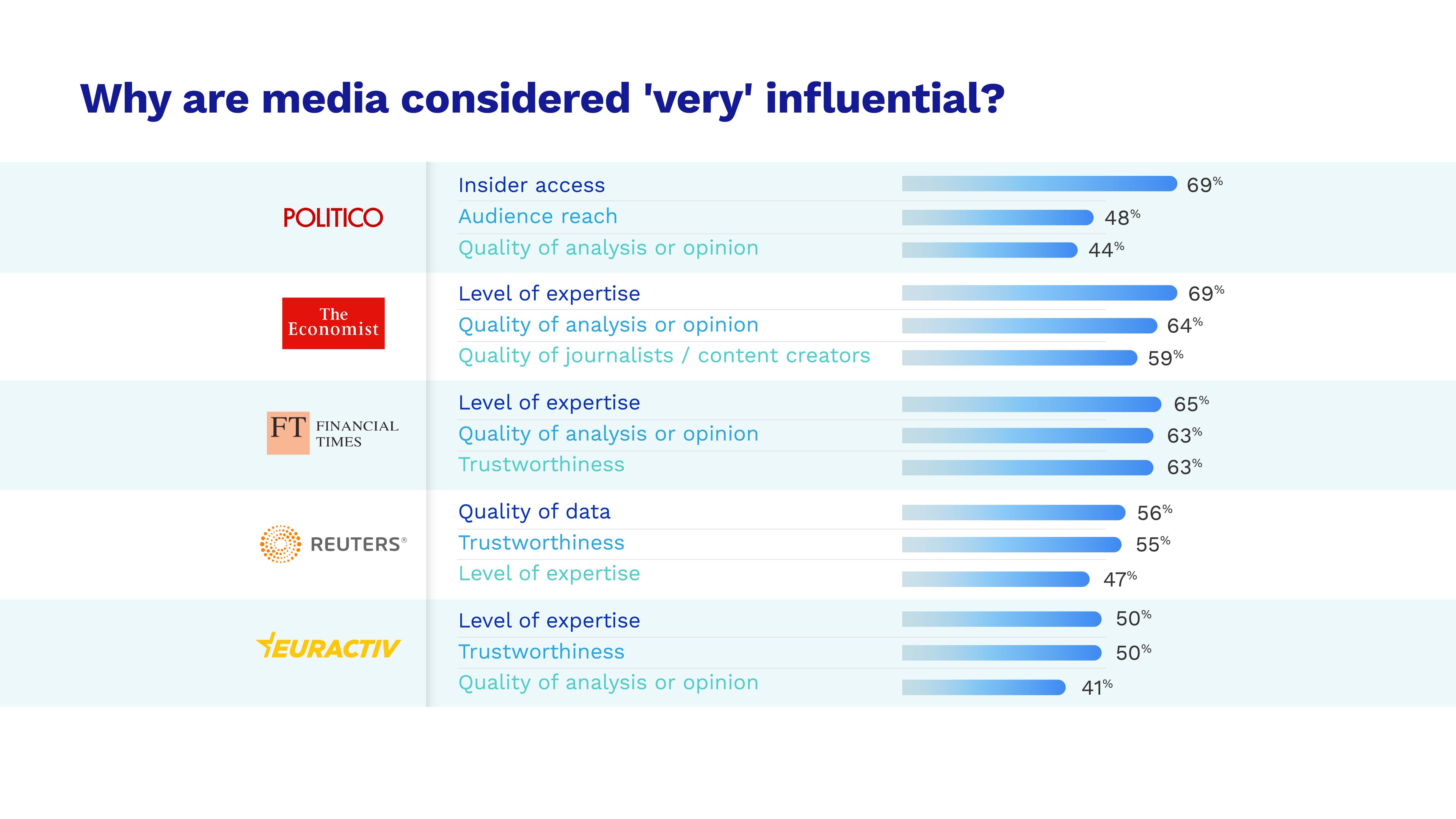
POLITICO is extremely influential over Brussels opinion formers, with 80% considering the outlet as such. Institution staff value The Economist the most, with 72% judging them as influential.
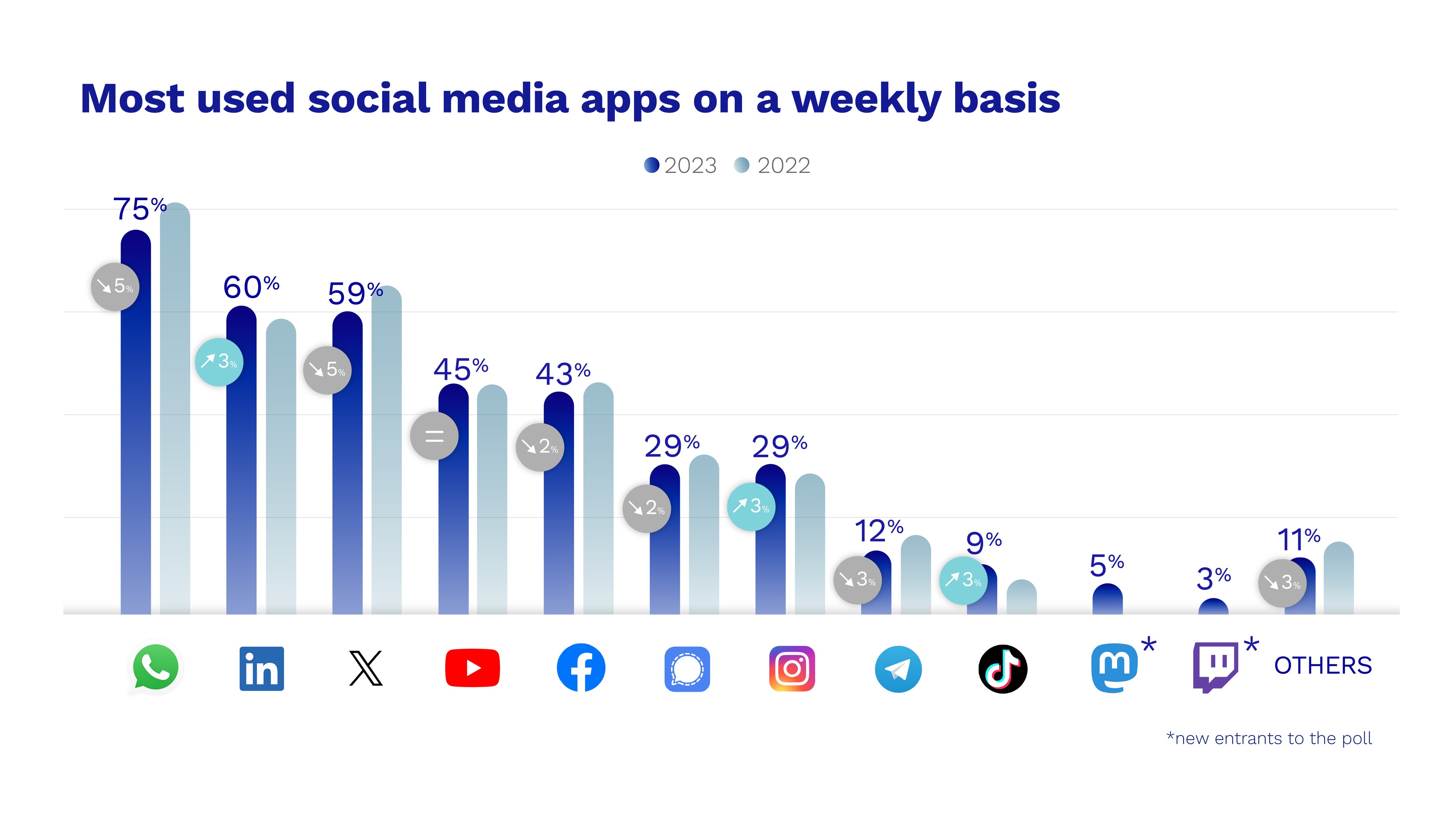
WhatsApp remains the most used social media among decision-makers, with 75% using it at least once a week. LinkedIn has retained its spot at second, with a slight increase in use from 57% to 60%. Meanwhile, usage of X (Twitter) has dropped by 5%. It should be noted that at the time fieldwork took place, the platform was still publicly named as Twitter under Elon Musk’s ownership but had not yet been rebranded as ‘X’.
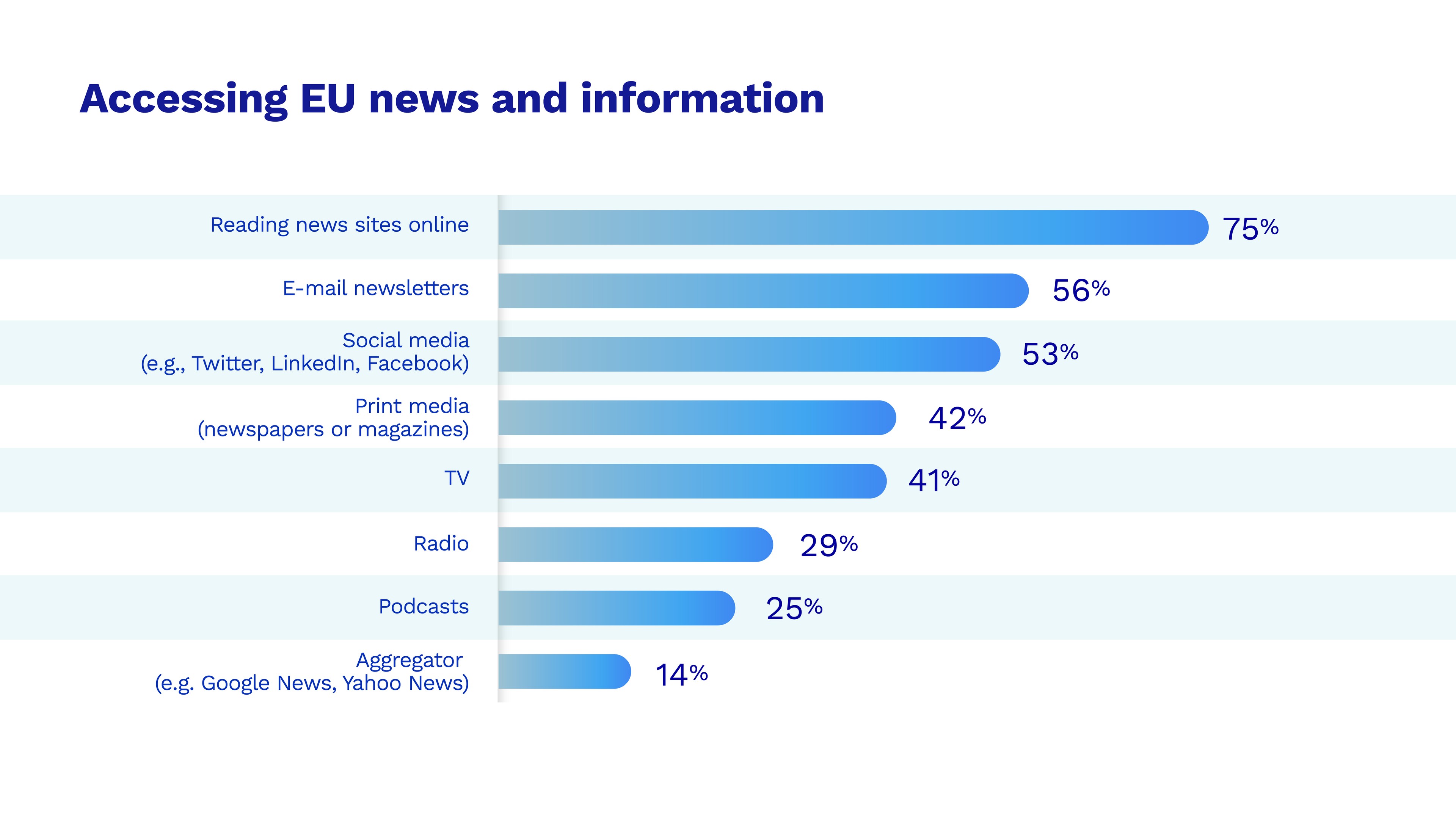
Reading online news sites has taken a sole lead at top spot here despite a 4% drop to 75%. Notably, e-mail newsletters dropped in popularity from 79% to 56%. Despite their seeming popularity, podcasts have not gained further popularity in the past year, lingering in a similar position as before.
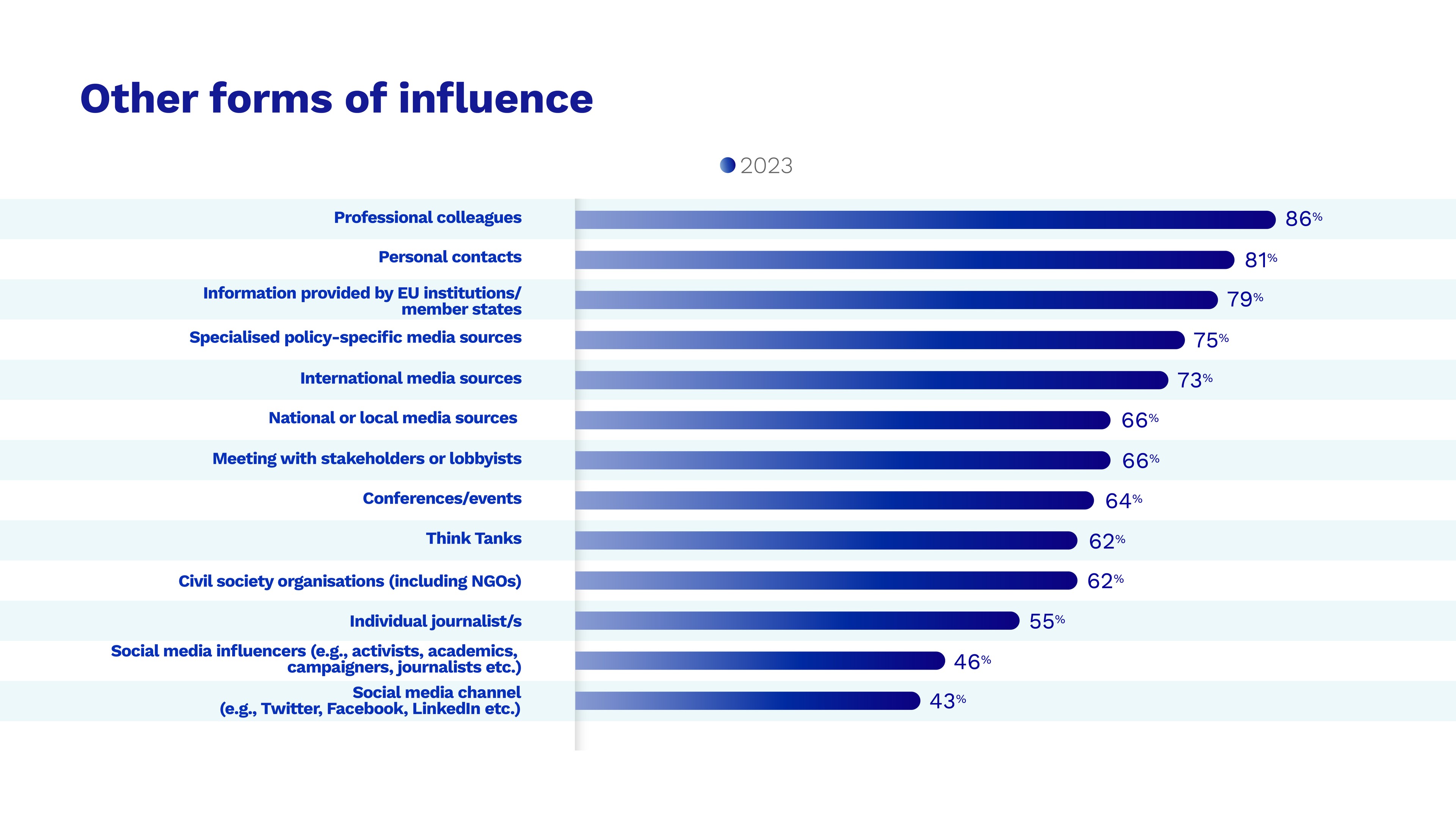
Professional colleagues and personal contacts remain the top two despite taking drops of 8% and 7% respectively. Other critical sources were: Information provided by EU institutions, international media sources, and meetings with stakeholders or lobbyists.
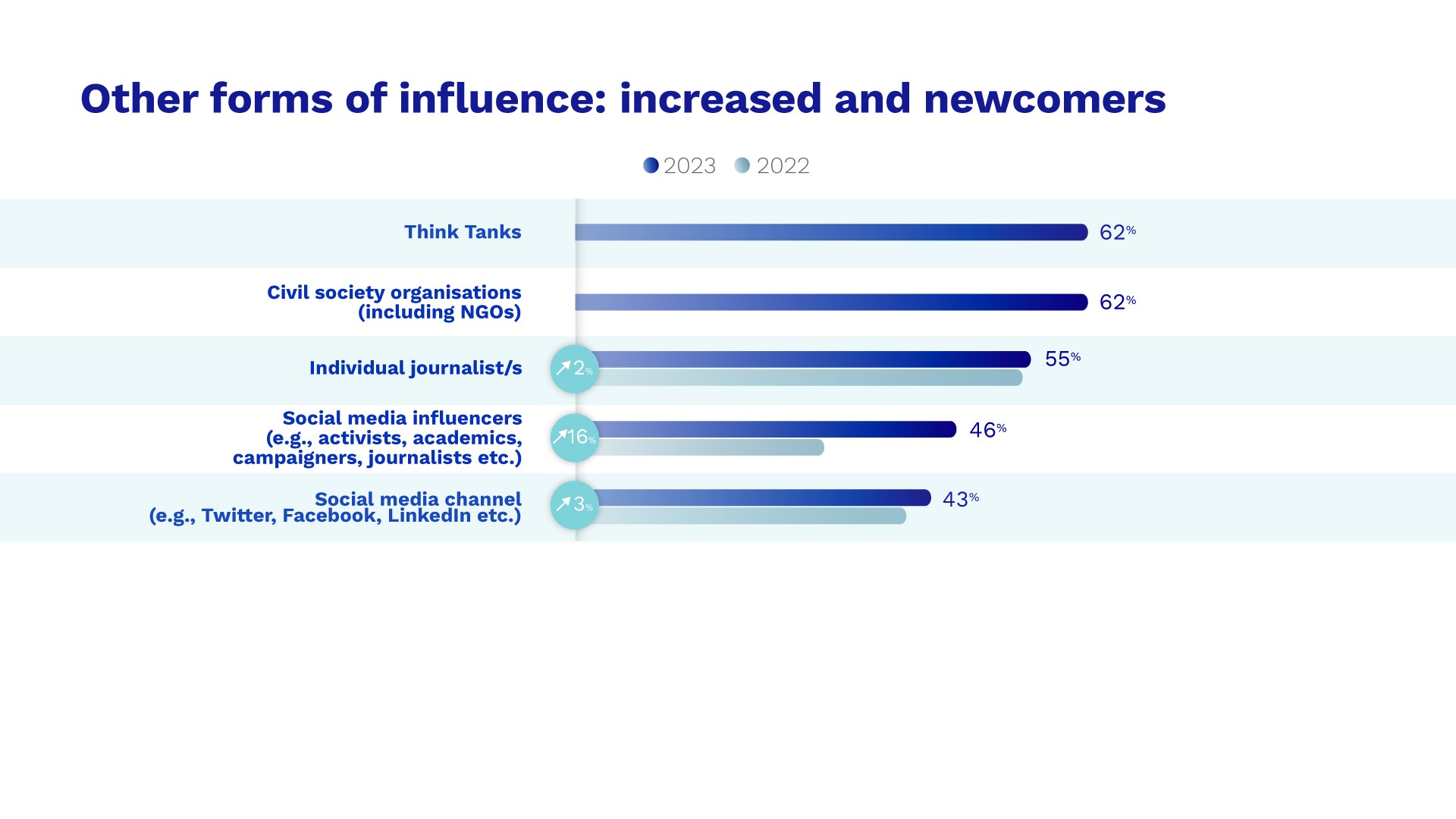
As forms of influence included for the first time in this edition of the Poll, Think Thanks and Civil society organisations (including NGOs) hold significant influence at 62% each. Social media influencers have seen a major leap in clout with a 16% rise to 46%, while social media channels have modest 3% rise to 43%.
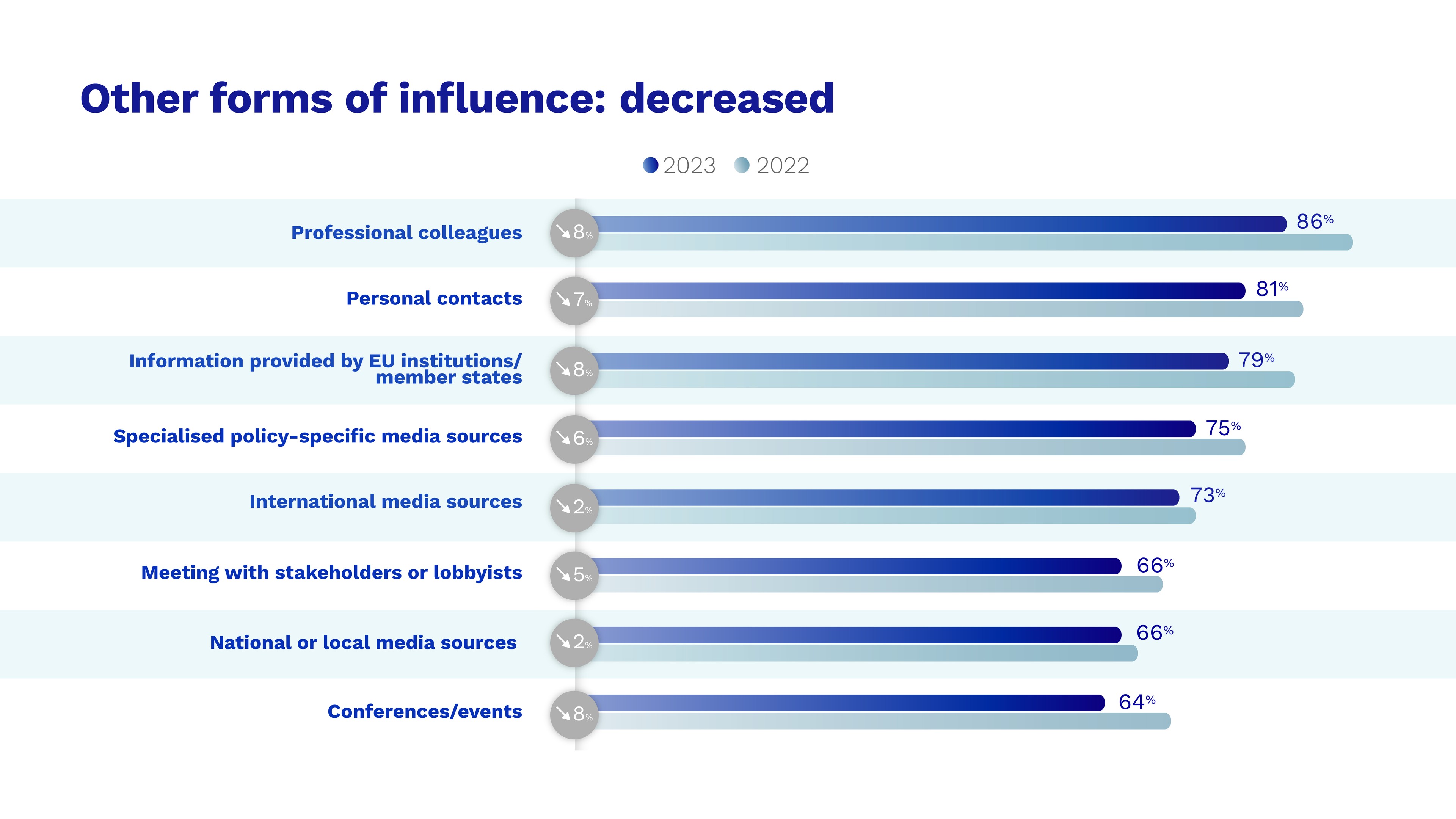
Meanwhile, professional colleagues and conferences & events have seen the biggest fall, both dropping by 8%. Personal contacts have also been knocked back a peg, falling by 7%.
Methodology note:
Savanta interviewed 170 EU decision-makers (made up of 20 MEPs, 60 EU institution staff and 90 Brussels opinion formers) online between 14 April – 17 July 2023.
Please note - the ‘nets’ of percentages (e.g. very influential and fairly influential combined) may be out by a percentage point compared to adding up the individual percentages. This is due to rounding within the percentages themselves – the nets are based on a calculation of the raw number count, and so are the most accurate.
For more information, please contact:
Kieran Chandler, Burson Brussels, [email protected]
Meghan Oliver, Savanta ComRes, [email protected]
